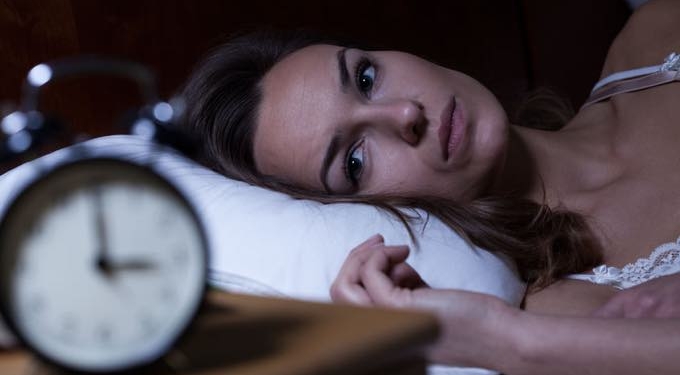
If you do not get enough sleep, your life may become unbearable. Unfortunately, insomnia is a very common problem that affects almost everybody at some point in their lives. Some people experience short-term insomnia, while others develop a chronic condition that makes their entire world unbearable.
It can be daunting as you try to solve your sleep problems on your own. You could have tried various natural and artificial remedies that may or may not work for you. The process of trying to ease insomnia can be very frustrating at times.
There is a link between mental health and sleep. Insomnia can adversely affect your mental health. Likewise, having a mental health problem can negatively affect your sleep pattern.
Lack of adequate sleep also interferes with the body in various ways. For instance, it adversely affects the body’s daily metabolic repairs, hence affecting the body’s stress adaptation centers. This also reduces the effectiveness of your body’s immune system.
The Hidden Causes of Insomnia
Below are some hidden causes if insomnia and how you can fix them to enable you to sleep well.
1 – Inadequate Exposure to Sunlight Can Cause Insomnia
Natural light plays a very vital role in promoting health. Every year, we discover new benefits of sunlight to our health. In addition to helping make vitamin D and lighting the world, the sun regulates our sleep cycle.
When you get sunlight early in the morning every day, your body will understand the difference between night and day. As a result, your brain will effectively regulate sleep hormones to help you feel tired and fall asleep at night. Therefore, sunlight influences consistent and restful sleep which comes naturally during the night.
On the other hand, if you do not have proper sunlight exposure, you risk developing insomnia. Ensure that you get the sunlight after waking up and during the day to help you regulate your sleep cycle.
Moreover, turn off electronics (including phones) and other artificial lights at least an hour before you sleep. They tend to trick the brain into thinking that it is still daytime, making you stay awake for long.
2 – Ever-Increasing Bodyweight
Additional bodyweight is highly likely to negatively affect your sleep cycle. Overweight and obese people are at risks of having sleep apnea. Sleep apnea is a health condition in which one’s interrupted breathing at night disrupts his or her sleep.
Furthermore, if you are overweight, you are more likely to have poor blood sugar regulation and hormonal balance. As a result, you may have frequent massive cortisol spikes after your meals. This becomes a huge issue if it occurs dinner time since cortisol is a stimulant.
Hence, you should work at reducing your body’s weight or maintaining the recommended body mass index. You should also take a small amount of low glycemic carbohydrates and a lot of healthy fats.
3 – Having a Damaged Gut
Did you know that the gut has much higher concentrations of melatonin, the sleep hormone, than the brain has?
Most people think that the gut only performs the food digestion and absorption functions. Science reveals that the gut plays a crucial role in your body, having a complex relationship with the brain.
For instance, the gut has about 30 different neurotransmitters that significantly influence your mood, thinking, and sleep among other actions. Many people having chronic sleep problems have damaged guts. If you optimize your gut’s health, you are likely to prevent insomnia and promote your brain health.
What to look into in your gut:
- Presence of pathogens (dysbiosis, parasites, viruses)
- Food sensitivities
- Leaky gut
4 – Sleeping in the Wrong Environment
You should optimize your bedroom to help you get an optimal seep. You should address various factors in your bedroom for it to create a good sleeping environment.
Bedroom for Relaxing
One of the most powerful things to do is to only use your bedroom for intimacy and sleep. This sets your brain that every time you go to the bedroom, you are going for sleep or intimacy. When you constantly argue or bring work into your bedroom, your brain will have difficulties allowing you to relax.
Avoiding Artificial Lights in the Bedroom
If possible, your bedroom should be in position that allows it to receive adequate natural light throughout the day. You should avoid using artificial lights in your bedroom. If possible, keep off alarm clocks, lamps, phones, and any other thing that emits artificial light from your bedroom. If you need light at night, you may consider purchasing amber or orange light bulbs for your bedrooms. You can also use candlelight or salt lamp. You may also wear light-blocking glasses
Maintaining Optimal Bedroom Temperatures
You should maintain your bedroom temperatures at between 60 and 68 degrees during the night. Optimal temperatures are perfect for relaxing and influence sleep. Notably, your body temperature tends to drops naturally in the evening. Therefore, if you lower your bedroom temperature too, you will be supporting this natural body cycle, making you sleep soundly. If you can control it, do not hesitate to do so.
5 – Not Making Quality Sleep a Priority Can Cause Insomnia
In this digital generation where relations are built on social media, never assume that only unsocial people sleep 8-hours-a-day. You too need a night of quality sleep.
If you get a solid rest every night, your mental acuity and energy will be boosted. As a result, various aspects of your life will be improved, including your social life. You need to be rational at identifying behaviors makes you stay late at night as they may affect your health.
















